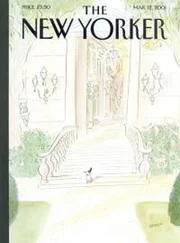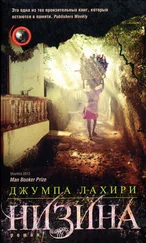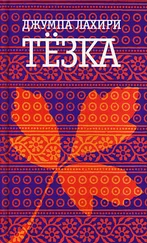At the Ticket Counter
One rainy afternoon I walk down a long street lined with shops. I pass groups of people who’ve decided to loiter at the storefronts for a few minutes: families, husbands and wives, teenage couples, tourists. I see some elegant women who behave as if they’ve been friends for decades and are having fun in spite of the rain. They succumb to a few pastries even though they’re always on a diet, and they take advantage of the sales. Years ago this used to be a stylish commercial street, but now cheap chain stores have taken it over, the same ones found in airports all over the world.
I feel like the only one with a specific goal this afternoon. I keep walking under my large, taut umbrella. There’s no wind.
At the end of the street there’s a magnificent theater built in the 1800s: one of the few remaining jewels in this run-down city. There’s no one waiting in line at the box office. I ask for the program, newly printed, for the next season, and I’m given a thin booklet with smooth pages. Instead of returning home to read it at my leisure I stand there in front of the ticket window. I read about the shows coming in autumn, in winter. The young person behind the window lets me study things at my own pace.
I take out a pen and mark a series of operas, symphonies, and dance performances I’d like to see. I recognize a few of the actors and musicians. I study the map of the theater, the arrangement of the seats in relation to the stage. I don’t have a fixed spot. I like to choose a different one each time and enjoy the concerts and performances from various points of view. I peruse all the options and feel drawn to certain shows both before and after dinner. That way, I’ll vary the routine. I know that the tickets, once purchased, are not refundable. Buying them is always a gamble, a leap of faith. It makes me anxious, and also makes me feel intrepid.
This is how I fill up the pages of my agenda, the one I buy at the end of every year at the same stationery store, always the same size and number of pages. Little notebooks in various colors that, with the passing of years, inevitably repeat: blue, red, black, brown, red, blue, black, and so on. A set of matching editions that sum up my life.
I make a list of the performances I’d like to attend.
“Just one ticket?” the person behind the window asks.
“Just one.”
But how will I be feeling at eight-thirty at night on May 16 next year? There’s no way of knowing. I proceed with the hope that I’ll be back, with the ticket in hand, wearing a nice dress, occupying a comfortable seat.
It was my father, who worked behind the window of a post office, who introduced me to the theater. He loved this world. My mother never went.
One time he’d booked tickets for a play running in a city just across the border. He’d wanted to take me, he’d wanted to treat me, early, for one of my birthdays.
“It’s bad luck to celebrate a birthday before it comes,” my mother said. But on the day of my birthday—I was turning fifteen—the show would have already ended. So we booked the train, packed our suitcases, and organized our passports.
The night before leaving, my father didn’t feel well. He came down with a high fever. It looked like he had the flu but he couldn’t lift his head from the pillow. He was admitted to the hospital for a few days. Bacteria had entered his bloodstream, and in the end, instead of going to see a play with him, I sat at his wake. The long train trip and the hotel and the actors onstage were replaced by the pageant of mourning. At the funeral one of my aunts, a little drunk, said: “There’s no escaping the unforeseen. We live day by day.”
I pay in cash and the person behind the window hands me my change. A coin falls, but it doesn’t hit the ground. It’s ended up inside my umbrella. The umbrella’s deep, also wet. I don’t want to stick my arm down there and search among the ribs.
There’s a group of elderly people behind me now. They want to visit the theater, there’s a guided tour in fifteen minutes. I’ve always found those tours silly, but it’s pouring outside, so I, too, ask for a ticket. It’s a minor expense. I join the group and for the first time I learn the history of the place that reminds me of my father. The guide talks to us about the shape of the theater, the style of the curtains, the fact that there’s a huge void above the lovely fresco on the ceiling. He tells us the name of the king who commissioned the structure two centuries ago, and the date of the fire that destroyed an entire section.
The people I’m with admire the theater as if it were a famous cathedral. They ask questions: Where were the original plans kept? After the fire, did they reconstruct it in the same style? There are quite a few of us because of the rain. The stage, expansive and messy, is in the midst of being set up for something. A few workmen are hammering nails into the floor.
We gather in the royal box, the highlight of the tour. How depressing. I feel trapped with all those tourists, what was I thinking? A few people strike poses in the royal box. Once it was an exclusive space, off-limits to people like us. But now, as long as we pay a little money, we’re welcome to enjoy it for a few minutes. A man takes a picture of his wife, as if she were the queen. I try to step out of the way but we’re crammed together, it’s too late. I’m caught in the charade, I play a part in it, albeit as an extra.
In the Sun
Today there are protests downtown, and the helicopters have been circling the city all morning. But it’s the sun that wakes me up, and it beckons me to my desk, where I write, wrapped in my robe, and then it draws me down to the piazza, where I’m greeted by the contained mayhem of my neighborhood.
It’s a splendid Saturday, the first warm day. Only a few people are still wearing boots, I see jackets unzipped and the blistered heels of girls in flip-flops who can’t stand their punishing leather ballerina flats anymore. Even though it’s Saturday there’s still a dash of elegance to how people are dressed: the bold shade of a jacket, a bright scarf, the tight lines of a dress. It feels like a party effortlessly organized at the last minute. The piazza becomes a beach on days like this, and a sense of well-being, of euphoria, permeates the air. All the stores are full of people, long lines at the bank machine, the butcher, the bakery, but no one’s complaining. If anything they enjoy the wait. While I’m in line for a sandwich a woman says, “What a spectacular day.” And the man behind her says, “This neighborhood is always spectacular.”
It’s my turn for the sandwich.
“Just wait and see how delicious this one’s going to be,” the man behind the counter says. He’s known me forever and makes me the same sandwich at least three times a week. “Today it’s going to be the best ever.”
He dips a ladle into a bucket on the counter. He weighs two slices of fresh cheese on the scale, arranges them on a roll, wraps the sandwich in paper, and gives me the bill. “Here you go, my dear.”
It hardly costs anything. I look for a place to sit and find a spot in the playground where they deal drugs at night, but at this time of day it’s bursting with kids, parents, dogs, also a few people on their own like me. But today I don’t feel even slightly alone. I hear the babble of people as they chatter, on and on. I’m amazed at our impulse to express ourselves, explain ourselves, tell stories to one another. The simple sandwich I always get amazes me, too. As I eat it, as my body bakes in the sun that pours down on my neighborhood, each bite, feeling sacred, reminds me that I’m not forsaken.
At My House
An old friend comes to visit; we haven’t seen each other in ages. I’ve known her since I was a child. We went to the same school, then the same high school in the center, then the same university, but after that she went to live abroad and doesn’t return too often. She got married a few years ago, after a long period of living on her own. She had a daughter. She got in touch recently, saying she’d be back for a week of vacation. She’d like me to meet her family.
Читать дальше
![Джумпа Лахири Whereabouts [calibre] обложка книги](/books/384312/dzhumpa-lahiri-whereabouts-calibre-cover.webp)




![Хелен Виннер - 33 несчастья Алисы [calibre]](/books/384302/helen-vinner-33-neschastya-alisy-calibre-thumb.webp)
![Даниэла Стил - Finding Ashley [calibre]](/books/384308/daniela-stil-finding-ashley-calibre-thumb.webp)
![Аманда Горман - The Hill We Climb [calibre]](/books/384311/amanda-gorman-the-hill-we-climb-calibre-thumb.webp)
![Дэвид Балдаччи - A Gambling Man [calibre]](/books/384314/devid-baldachchi-a-gambling-man-calibre-thumb.webp)
![Джон Ирвинг - Viename asmenyje [calibre]](/books/384315/dzhon-irving-viename-asmenyje-calibre-thumb.webp)
![Джон Ирвинг - Paskutinė naktis Tvisted Riveryje [calibre]](/books/384317/dzhon-irving-paskutine-naktis-tvisted-riveryje-cal-thumb.webp)
![Джон Ирвинг - Pasaulis pagal Garpą [calibre]](/books/384318/dzhon-irving-pasaulis-pagal-garpĄ-calibre-thumb.webp)
![Джон Ирвинг - Našlė vieneriems metams [calibre]](/books/384320/dzhon-irving-naŠle-vieneriems-metams-calibre-thumb.webp)